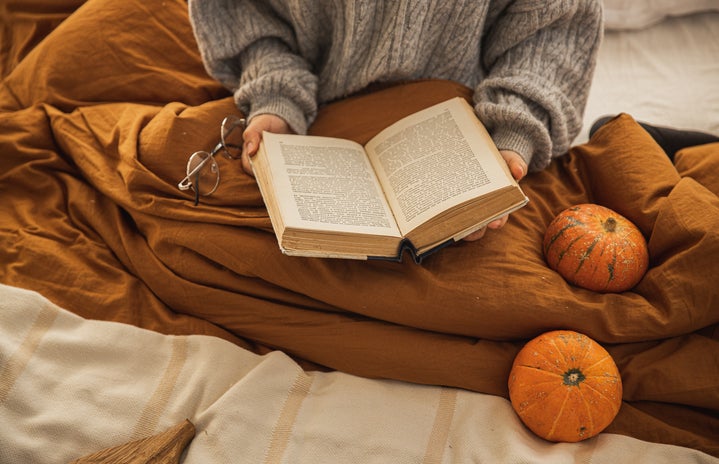Fiction. I’ll write fiction.
Things have certainly changed.
When I first imagined my career, I saw myself as a fiction writer and nothing more. I would write all types of books like children’s, young adult, crime, suspense, and fantasy. I would write as many genres of fiction as I can.
I don’t see myself doing that anymore. That linear path has now diverged into two.
From what I recall, I hadn’t read many non-fiction books. Most of them were for school, and the first time I was exposed to it was when I read The Diary of Anne Frank and Helen Keller’s The Story of My Life—none in my spare time. However, I was so young when I read it, I never realized it until later, or even stopped to wonder. All I knew was that these were classics and written by two talented writers.
The beauty of non-fiction was lost on me. “Why did I not like non-fiction? Why did I try not to read it?” I asked these questions, but if I go to the root of the question, I think what I should be thinking about is, “What were my thoughts about non-fiction? What was my concept of it?”
I don’t know. I’m not very sure about the specifics, but I’m confident that I didn’t have a clear idea of what non-fiction was. I probably thought it consisted of just research essays and scholarly journals—not memoirs, autobiographies, and biographies, to name a few. Maybe I thought that they were separate and were not interrelated. Weird. With this mindset, it can limit a person and it did exactly that. I felt that I could be stifled, that there wasn’t room to show my creativity, and it created a wrong and narrow-minded perspective.
During my freshman year at Emerson, I read some works by Claudia Rankine, Tara Westover, Trevor Noah, Roxanne Gay, and Harrison Scott Key, to name a few. They built paragraphs that were so heartfelt, humorous, serious, gut-wrenching, or relatable. Their emotions and voices are so present and powerful in every word, and each story is conveyed so eloquently, creatively, and done with a style that shows their personality. I loved it.
When I read these stories, they allowed me to see their thoughts, their transformation due to the situations they encountered, and what it taught them. I could look at the work and see various perspectives, and how people lived their life. They taught life lessons that can be reiterated many times, framed differently, due to the universality of the themes. Even if they are different, I could learn from them and try to understand what it is like to be in their shoes. But even if I am learning something new, unconsciously, I am also thinking about life and the world, which allowed me to connect to the stories even more.

Reading is different from writing. It is another experience.
When it came to writing, I could definitely feel similarities that fiction didn’t have. When I found an idea and it clicked with me, it made me even more excited thinking about how I will construct and express my story in the best way I can, or what messages I want to tell the audience and what purpose I want for my writing.
However, writing about your life and making yourself the character in the story without fictionalizing anything is difficult. While I was in the common room with my computer on my lap, I had to think about an event that had occurred in my life for an assignment. I would type, delete, type, and delete—it happens. There were moments where my hands weren’t clicking on my keyboard. This silence in my head was passing as slow as molasses. Tears fell down my face and I wiped them. No one passed by to my relief. Everything feels a little bit harder. I am back in that situation—my present self.
Yet, I also hovered like a bird, looking down at the event so that I create this distance between myself and my past. I hovered so that I could see things objectively and reflect and understand this event further, learning what it has done to help me and give me space to recognize something that I didn’t even consider before. Although it can be painful, there was something so freeing about writing this down and using it as a form of release. It allowed me to further understand my deepest emotions and think about my personality, now and then, how I have grown into the person I am, how I could make my story seem relatable towards others, and the lessons I wanted to share with my readers. Within this process, there was always something for me to think about and know what I could do to improve my story and who I am.
Compared to before, everything seems a bit clearer now.
Thanks to my classes, I got to expand the genres I could read and write. I discovered a new love for writing non-fiction and accepted the beauty of the craft and the power it can have on the audience. It made me appreciate and know that there is creativity when I am writing non-fiction stories, and that I can approach it many ways, whether I decide to write a personal essay or a research paper. My ideas of nonfiction changed. I know better that there is always something important to say.

On top of this, being exposed to non-fiction made me fall in love with writing essays, especially personal narratives. It made me open up my mind and see that there are so many ways that I can show my style, voice, and creativity in a story by thinking about my words and how I structure the essay. There is a way to express myself and that I too can do this when I am writing a research paper and proving my own thoughts, which is something that I hadn’t really thought of too much before.
For sure, it made me even more passionate about writing.
In my mind I can see myself taking both fiction and non-fiction: entering the world with a more open-mind, trying out different genres, experimenting with what works for me or not, and practicing my strengths and weaknesses. I can try my best to be the best writer that I can be. Best of all, I didn’t have to do one or the other, that I can do both.
I realized that my ultimate goal is to become a nuanced writer, to prove that to myself and others, and that I am capable of doing anything that I want to do.
I can’t wait for my future. I can’t wait to see where this will take me and how far I will go. But for now, I’ll look forward to seeing how writing and reading will change my life for the better and what kind of writer I am now and will become as time continues to go on.



